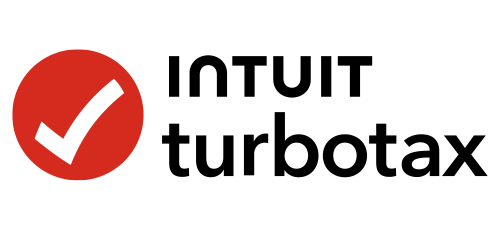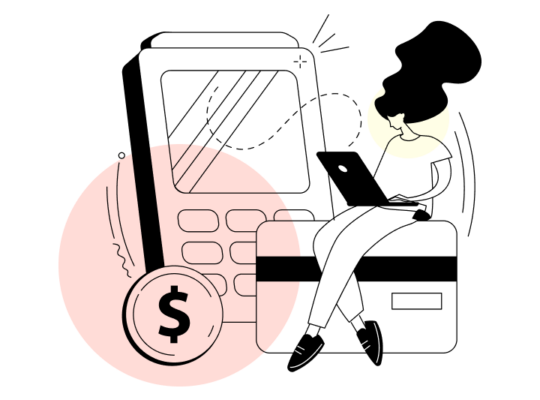Staff Holiday Parties and Employee Gifts: What’s Deductible for Business Owners?
TurboTax Canada
December 4, 2023 | 4 Min Read
Updated for tax year 2025


A new way to file your business taxes is here!
As you plan holiday festivities for your business, have you found yourself wondering—is the staff party tax deductible? Organizing an office party can be a delightful way to show appreciation for your team. But did you know these gatherings—as well as gifts to employees—can also offer tax advantages?
Under Canadian tax law, if your office holiday party meets specific criteria, you could be eligible for significant deductions. Here’s an overview of the tax implications for your festive acts of gratitude—from gatherings to gift cards.
Key Takeaways
- Staff parties can be 100% deductible, if they’re fully inclusive and below the CRA cost cap.
- Choose noncash gifts for your team, in order to avoid tax complications.
- Keep detailed records of holiday expenses, for a smooth experience at tax time.
Are holiday staff parties tax deductible?
Whether it’s lunch at the café across the street or a catered dinner and dance, staff parties are terrific for building team morale. Generally, only 50% of meals and entertainment costs are deductible as business expenses. Luckily, the rules for company-wide events are different.
As long as your event meets certain requirements, 100% of the expense can be deducted. The main rule is inclusivity, meaning that the event must be open to all employees—not just a select group. Also, the cost of the event cannot exceed $150 per person, including the cost of extras such as transportation to the event or taxi fare home.
Rules for virtual parties are a little more complicated and depend on whether entertainment is offered. If entertainment is included, then the $150 cap applies. If no entertainment is provided, then the cap is $10 per person. Spouses are not included in the per-person cost calculation for virtual parties but they are included when calculating costs per person for face-to-face gatherings.
A tax-deductible holiday party example
Scottish Bakery had an excellent year. Sales were up. So Scott, the owner, decided to host a company-wide holiday party, complete with food and entertainment. The venue is charging $85 per person for the event. Employees can bring their spouses and children to the event. Rules indicate that 100% of the event cost is deductible because all of Scott’s employees are invited and the cost per person is below $150 (the cap for in-person events).
Scott also planned a separate luncheon for his current manager, head baker, and administrative assistant. Only those three individuals were invited to attend. Because the entire staff was not included, the 50% deductibility rule applies: only half of the luncheon expense is tax deductible.
Are employee gifts tax deductible?
When the holiday spirit strikes, many employers think of rewarding their team with bonuses or gifts. But before you start wrapping up those presents, it’s crucial to understand the tax implications of gifts to staff. Whether a gift is taxable depends on the nature of the gift.
Are cash gifts taxable?
Yes! Cash gifts to employees are taxable and must be reported on their T4 slip.
Can you give employees gift cards tax-free?
In most cases the Canada Revenue Agency (CRA) views gift cards as the same as cash, so they are treated as employment income. However, there are special circumstances where the CRA considers a gift card a non-taxable benefit. All three of the following conditions must be met:
- The card comes preloaded with a dollar value and can only be used to purchase goods from the retailer identified on the card.
- The card clearly states the amount cannot be converted to cash.
- A log is maintained recording the employee name, date the card was given, the reason for the card, the type of gift card, the amount of the gift card, and the name of the retailer.
If the gift card does not meet all three criteria, it is considered a taxable benefit, which means the amount needs to be reported on T4 slips, with income tax, Canada Pension Plan (CPP) contributions, and Employment Insurance (EI) premiums deducted.
What about non-cash gifts?
Many gifts to employees are considered a taxable benefit. For gifts, it’s not a matter of including everyone on the list, like it is with parties. The type and value of the gift determines its status as a taxable benefit. There is a cap of $500 (or less) on the value of noncash gifts which are non-taxable.
For example, full-time employees at Scottish Bakery will receive flat screen TVs valued at $500 each for the holidays. There are no tax implications for the employees, because the gift’s value does not exceed $500 and the gift is not cash.
If the TVs were valued at $700 each, the treatment would be different. The amount over the $500 cap would be considered a taxable benefit and would be taxed as such. This means that the $200 overage ($700 – $500 = $200) would be added to employment income on each employee’s T4, designated in Box 40 and subject to income tax and CPP premiums (no EI premiums for noncash gifts).
Don’t forget to keep track
Now that you’ve gotten the lowdown on the tax rules, planning your holiday celebration and gift giving can be fun and offer smart tax benefits. Just make sure to keep all of the receipts associated with your holiday gifts for tax time—regardless of the activity, bonus, or event. It’s a good idea to label each receipt so you’re sure to claim the proper amounts at the proper rate.
Now go find some holiday cheer!
Your self-employed tax situation, covered
Whether you’re a freelancer, side-gigger, independent contractor, or just have multiple sources of income, TurboTax can handle your return.
Get StartedRelated articles

© 1997-2024 Intuit, Inc. All rights reserved. Intuit, QuickBooks, QB, TurboTax, Profile, and Mint are registered trademarks of Intuit Inc. Terms and conditions, features, support, pricing, and service options subject to change without notice.
Copyright © Intuit Canada ULC, 2024. All rights reserved.
The views expressed on this site are intended to provide generalized financial information designed to educate a broad segment of the public; it does not give personalized tax, investment, legal, or other business and professional advice. Before taking any action, you should always seek the assistance of a professional who knows your particular situation for advice on taxes, your investments, the law, or any other business and professional matters that affect you and/or your business.









